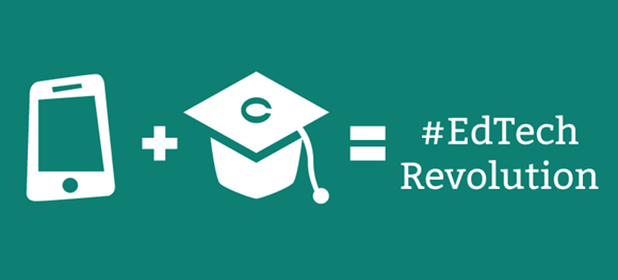The goal is world domination

Three years ago, the Norwegian education technology, called EdTech, was a small industry with only a handful of companies. But on the big SXSW show in Austin, Norwegian companies this time had their own house, and collected large crowds every day, says Heidi Arnesen Austlid ICT Norway. In this Kahoot was an important factor.
“The Norwegian companies are adept at pulling together in packs and Kahoot has dragged along the other companies,” she says.
Kahoot is a quiz game that is often used for learning, where teachers can create a quiz with questions on the subject the class is working on.
“Kahoot has 20 million users in the US market, says Austlid, who estimates that the Norwegian EdTech industry now consists of nearly 50 companies, clearly making it the most vital in the Nordic region.
You may also like: What’s the hoot about Kahoot?
In November last year Kahoot had 12 million users. Now it’s up to 30 million, according to Johan Brand, co-founder of Kahoot.
Wild Growth
Brand believes there are enormous opportunities in this market.
“The goal is world domination. You would almost think we’re kidding, but it is completely seriously. There is no reason why the new Google for education should not come from Norway”, he says, and describes Kahoot as a “game-based learning platform.”
“It’s about establishing the brand as a permanent part of the classroom. We open offices in Austin, both to get closer to users and partners,” he said.
The service is basically free, and the company will make money on additional services.
Among several other Norwegian represented at the fair were Creaza and Kikora.
“We are the most widely used digital learning agent for mathematics in Norway today, and stands on the stairs to expand to Sweden, Denmark and the US”, says Johan K. Vik Kikora.
Carl Morten Knudsen from Creaza highlights cooperation between the companies.
“We can cooperate in terms of products and by taking each other to different markets and meeting points,” says Knudsen.
Clings
During SXSW ICT Norway and the municipally-owned Oslo Business Region cooperated about Oslo Lounge, a separate house where Norwegian technology was showcased for ten days. The municipality was also involved by signing a cooperative agreement with Austin and London at the fair.
“The goal is to spread Norwegian education technology to the world. The Norwegian market alone is too small to make good money,” points Austlid.
You might also like: What role the state should play in forming a healthy startup environment
Among those who are working to strengthen this sector is Rolf Assev. He was central to the development of the browser company Opera and is now a partner in the Startup Lab in Oslo as well as Chairman at WeWantToKnow, the company behind the popular Dragonbox app.
“We seek 2-3 million in public funds cluster. In these, the members of the cluster decide what you should focus on. This particular cluster will focus much on sales and exports. It is project-based, and the members decide what they want to be part of,” says Assev.
He believes working closely together entails great benefits, and believes the Norwegian environment is very open, and that people are good at opening doors for each other.
Investment Boom
US companies engaged in education technology raised a total of 1.36 billion dollars in 2014, according to a report from EdSurge. The figure corresponds well with assays from CB Insights, pointing to a tripling of investments between 2010 and 2014. Companies such as Open English, Tutor Group and Knewton each raised over $ 100 million.
“It is not so strange, because very little has happened within education over the last hundred years. Now very much is going to happen, and with it follows a lot of money,” says Assev and refer to the fact that everyone is now suddenly online, with mobile Internet, and that this opens new opportunities for learning, even outside school.
“To succeed, it is important to include teachers, and Norwegian companies should preferably be able to get its first customers in Norway,” says Assev.
Source: DN – Dagens Næringsliv




